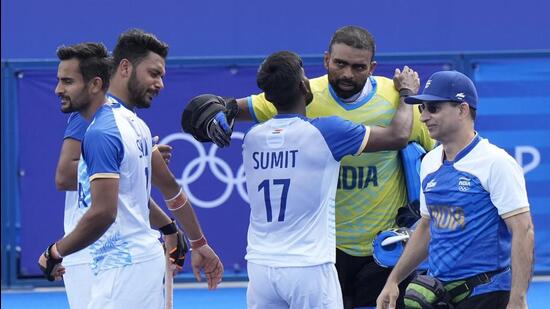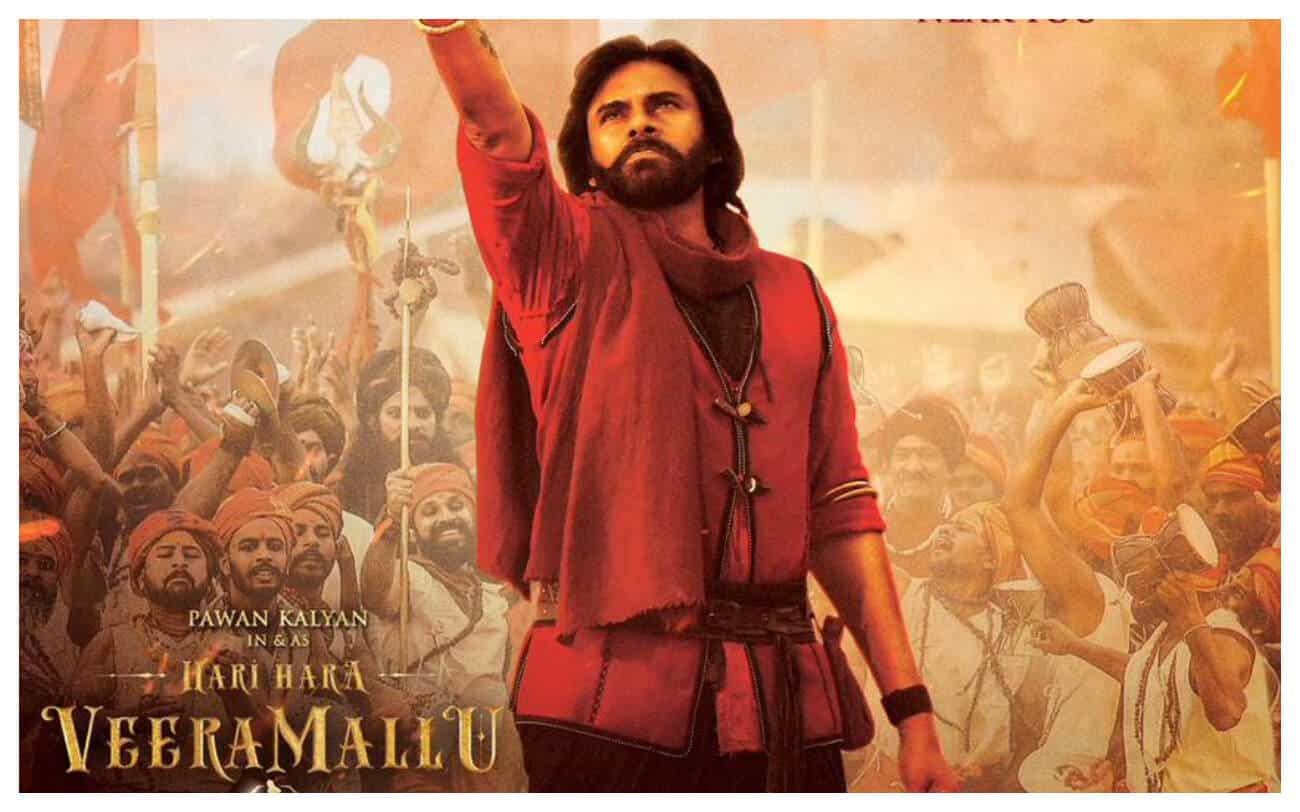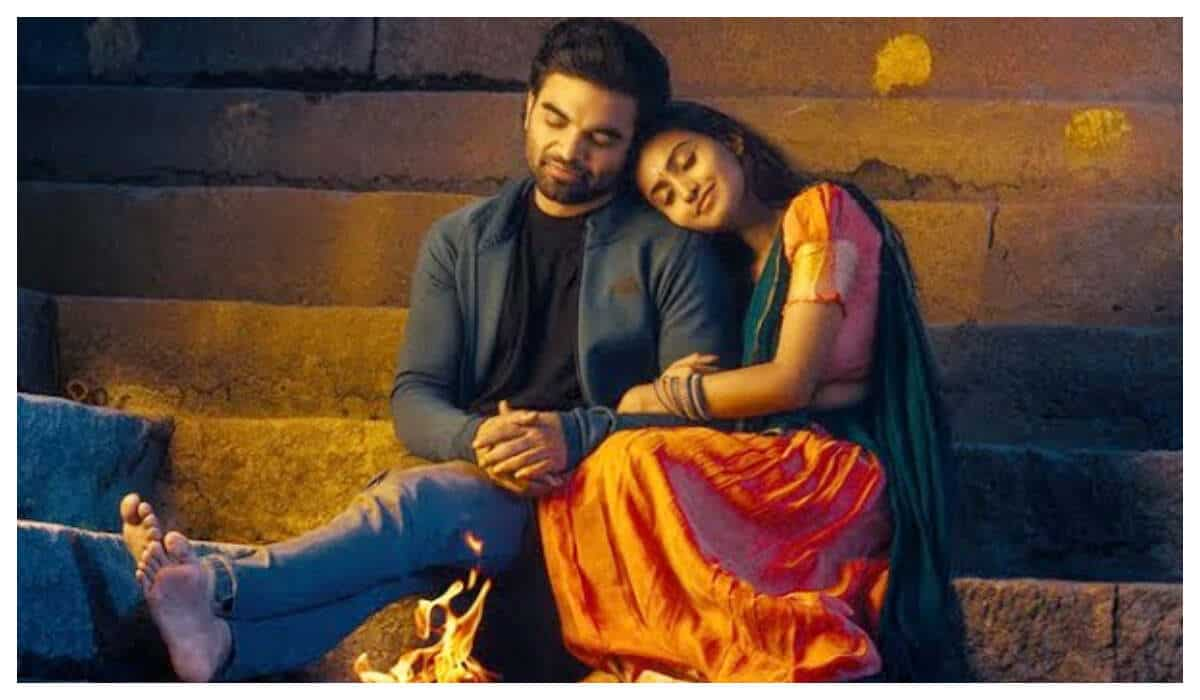
India vs Great Britain: Team work made the dream work
8 months ago | 76 Views
Paris: Hardik Singh pumped his chest and clenched his fists towards the crowd. Craig Fulton took one hand off his white board and raised it aloft. Players gathered and wrapped their arms around each other.
If you didn’t know the score, you wouldn’t know the contest was still alive. This was 1-1 at full time between India and England. The battle was still to be won. The shootout, or its outcome, didn’t matter though. The shots were fired earlier, and India were wounded in vigour. Breathing fire, they’re now into the semi-finals of the Paris Olympics.
Five minutes after India received a red card to be a player down, Harmanpreet Singh’s right arm flung and flexed with greater fury after he put his team a goal up converting the penalty corner. The leader was at it again after putting his team a goal up again, this time in the shootout. Harmanpreet went up close, perhaps feeling personal, while celebrating right by the face of England goalkeeper Ollie Payne.
This was no rugby, where big, bruised frames can run wild in celebrations. This was hockey, where exhausted bodies and minds usually shake hands or embrace in hugs with opposition players.
But this men’s quarter-final was no ordinary hockey match. This was a match in which the basic premise of 11 versus 11 was thrown out of the window at the start of just the second quarter. This was a match in which Indian players, a man down with 43 minutes on the clock still to run down, stood up collectively running for their lives. This was a match in which India felt wronged on several occasions in various forms (red card, refereeing, English goalie using an IPad at the start of the shootout), yet showed the fight and the poise to come out at the right end of the result.
As coach Fulton put it, “when s**t happens, get together”.
When s**t happened, India broke their shackles, rewrote the set structures and scripted one of Indian hockey’s most famous victories.
“Was it the greatest win? From one man down, yes,” Manpreet Singh, captain of India’s Tokyo Olympics bronze medal journey, said.
Manpreet was forced to push back into a more defensive role after the card, which took out defender and more significantly first rusher Amit Rohidas out of the game. So was Harmanpreet.
Defend to win has been the mantra of this team under Fulton. It was put under the most severe test, in the company of intense pressure, in this win-or-nothing match. India saved 21 shots on goal, including 10 penalty corners with 10 men. They’d practiced scenarios of playing with one man down for a specified penalty time that a green or yellow card warrants. But a red?
“It’s not normal to have a red card that early. Then when that happens, what is plan B? We’ve been talking about defence for 14 months, and we dug deep,” said Fulton, his voice hoarse after all that yelling marshalling his troops against odds.
“When you talk about defence, it’s also about showing your love for the teammate, by covering him, by helping him. Sree (PR Sreejesh) did that for us, and we did that for him.”
Sree did what he usually does in the shootout — get the job done. Sree did what he usually does leading the defence all through the match — shouting a slew of expletives in Hindi. Here, he had one less person to shout at.
“I don’t know how many kilometres the boys would have covered today. Everyone, from centre forward to those deep in defence was running around,” Sree said.
That was what pleased Fulton the most. Faced with a situation that could’ve easily broken their spirit, the players joined forces to form a sum of all parts.
“Everyone gathered around to work the tactics. The full staff was hands on. It was a fantastic day,” Fulton said.
It was also the coach’s toughest day in office since he took charge of Team India. “One hundred per cent. Think of what’s at stake. Everything. And everything went the other way what we thought it would go.”
Fulton, therefore, wouldn’t just call this a win. “It was a statement. Just to ourselves. That, OK, when our backs are against the walls, we all roped in, we’re all in this together. We had to respond straight away. And we did.
“It was a real statement, think about that.”
No one’s going to forget this in a hurry, anyway.
Read Also: Paris 2024: A golden streak of Bol
#




















